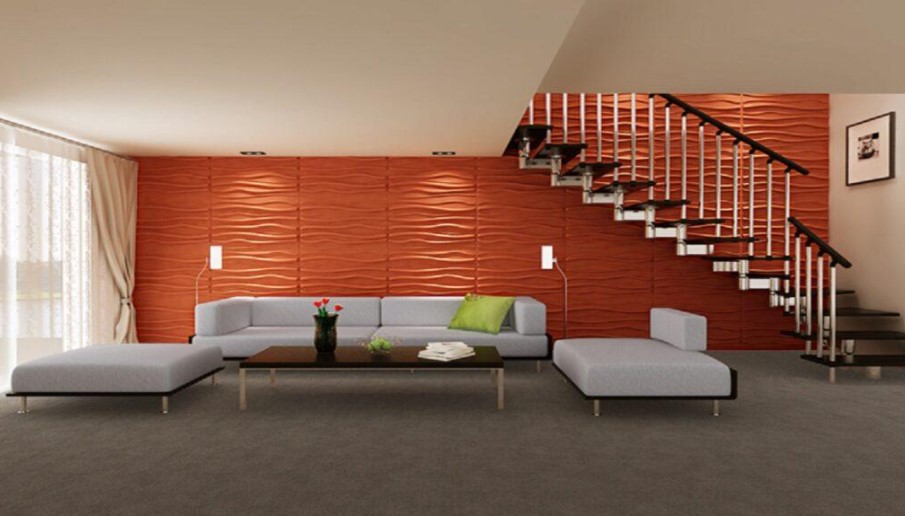Wall panels, which may be utilized to cover your walls, are an important aspect of modern home design. It improves the beauty of your interior area while also increasing usefulness.
WPC wall panels and PVC wall panels are both popular choices for wall coverings. These materials are perfect for interior applications due to their high durability, adaptability, and beauty. In this essay, we will compare WPC vs PVC wall panels in-depth, covering their components, merits, and limitations.
What exactly is WPC wall paneling?
WPC is a composite material composed of wood fibers and recycled polymers. It is created as a composite material by combining wood fibers, thermoplastics, and adhesives. It is stronger and more durable as a result of its unique construction and composition. The wood fibers add strength and stability, while the plastic adds moisture resistance and durability.
One of the primary benefits of WPC wall panels is their longevity and sturdiness. It also comes in a variety of colors, textures, and patterns, giving homeowners virtually limitless options for interior design.
What exactly is PVC wall paneling?
PVC resin, additives, and stabilizers are used to make PVC wall panels.PVC panels are more lightweight. It’s also simple to install and resistant to moisture and mildew, making it suitable for usage in damp areas like bathrooms and kitchens. PVC’s qualities make it ideal for walls that require a strong, smooth surface. Additives and stabilizers improve the performance and resilience of the wallboard to external factors.
Important WPC vs. PVC Wall Panel Comparison
WPC wall panel advantages
Moisture and insect resistance: WPC is more resistant to moisture due to its plastic composition. As a result, it is an ideal solution for wet areas such as kitchens and baths. It is also exceptionally resistant to insect infestations, which is one of the key advantages of WPC panels over natural wood. WPC wall panels can be an excellent choice for interior design.
WPC wall panels are fade-resistant due to their UV resistance. The color will not fade over time due to its superior UV protection.
Rich appearance: WPC panels are available in a wide range of looks and styles. Homeowners can select the look that best suits their personal tastes and architectural style. With this panel, you can easily create a more unique interior environment.
Durable: One of the most significant benefits of WPC wall panels is their durability. The mix of wood fibers with thermoplastic components results in a more robust and long-lasting wall panel. They are unaffected by environmental extremes such as humidity and temperature, and they can resist more severe wear and tear. This is why an increasing number of homeowners are opting for WPC panels. Even after a lengthy period of use, it will not break, rot, or distort.
WPC wall panels are environmentally friendly since they are created from recyclable materials that have a lower carbon footprint. It is also reusable, making it a more environmentally friendly choice.
WPC wall panel disadvantages
Insufficiently natural: WPC wall panels are now able to simulate the texture of actual wood quite effectively, but it is still easy to tell them apart. WPC-decorated walls appear to be real wood, but they are not upmarket.
WPC wall panels are more expensive than other materials despite providing outstanding performance. This means you’ll have to pay extra for the initial investment. Furthermore, you may require the services of a professional installer to install the panels, which would raise the cost budget.
PVC wall panel advantages
Versatility: PVC wall panels can be designed in a variety of ways. To match, there are numerous designs, colors, and finishes to pick from. It has a smoother appearance and surface, creating a modern and fashionable ambiance in the interior setting.
PVC panels are incredibly simple to maintain and clean; simply wipe them down with a moist cloth or soft brush on a regular basis.
Moisture resistance: PVC wall panels, like WPC wall panels, are highly resistant to moisture, making them excellent for usage in humid situations such as kitchens and bathrooms.
Chemical resistance: PVC wall panels are very chemical resistant. This makes them suitable for usage in both industrial and scientific settings.
They are less expensive as compared to WPC panels. As a result, PVC wall panels are a smart solution for certain homeowners with a limited budget.
PVC wall panel disadvantages
Damaged easily: Because PVC wall panels are not as thick as WPC, their durability is diminished. PVC panels are prone to scratches and dents when in use.
Lower fire resistance: Because PVC has a lower ignition point, it is less fire resistant.
Conclusion
To recap, both WPC and PVC wall panels offer distinct advantages and features that may be used in a variety of situations.WPC wall panels perform admirably in terms of look, durability, and fire resistance. However, PVC panels are more cheap and come in a range of patterns and designs. As a result, homeowners must select the appropriate panel based on their demands and personal preferences.

